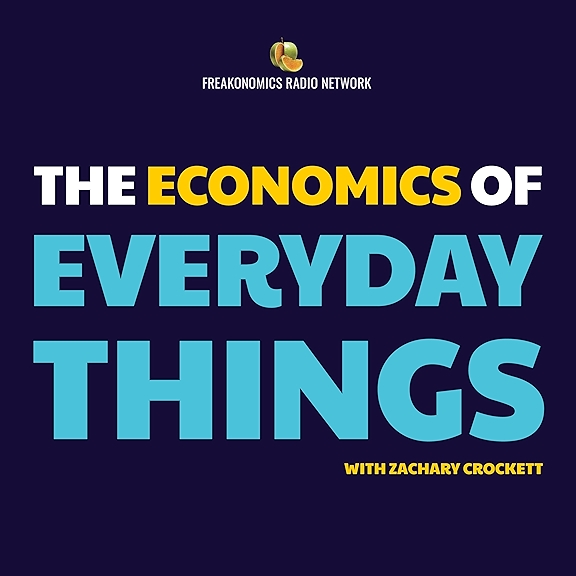
The Economics of Everyday Things
Who decides which snacks are in your office’s vending machine? How much is a suburban elm tree worth, and to whom? How did Girl Scout Cookies become a billion-dollar business? In bite-sized episodes, journalist Zachary Crockett looks at quotidian things and finds amazing stories.
Join the Freakonomics Radio Plus membership program for weekly member-only episodes of Freakonomics Radio. You’ll also get every show in our network without ads. To sign up, visit our show page on Apple Podcasts or go to freakonomics.com/plus.
Our Editor's Take
The Economics of Everyday Things explores the hidden costs of often overlooked matters. The podcast investigates mundane services, concepts, and objects from a new perspective. A fascinating system of politics, competition, and chaos often influences costs. The show strives to expose those systems and bring clarity to the finance of everyday life.
Each episode of The Economics of Everyday Things is a short documentary about one topic. It can be anything from bowling alleys to a song that was popular decades ago. Host Zachary Crockett wishes to examine the financial viability of each subject. He traces its history and interviews experts and people who benefit from it.
For instance, there's one podcast episode where Crockett studies used hotel soaps. He wants to figure out what happens to that hygiene product after the guest leaves. To do that, Crockett first learns when soap became a free perk in hotels. Then, he speaks to someone who found a way to recycle it and hears about the mechanisms that make that possible. With all that information, Crockett sets out to uncover where the new bars of soap go and how much money gets made or saved in the process.
The Economics of Everyday Things offers digestible episodes that are entertaining and informative. They uncover the mystery behind the hows and whys of modern life. There are no biases or opinions in this podcast, only facts. Crockett does an incredible job of researching every topic and bringing multiple perspectives. Thanks to his experience with writing about business and tech, he constructs a compelling narrative. He makes sure to leave his views out of the reporting. Instead, he allows listeners to come to their own conclusions.
Play Trailer
Episodes